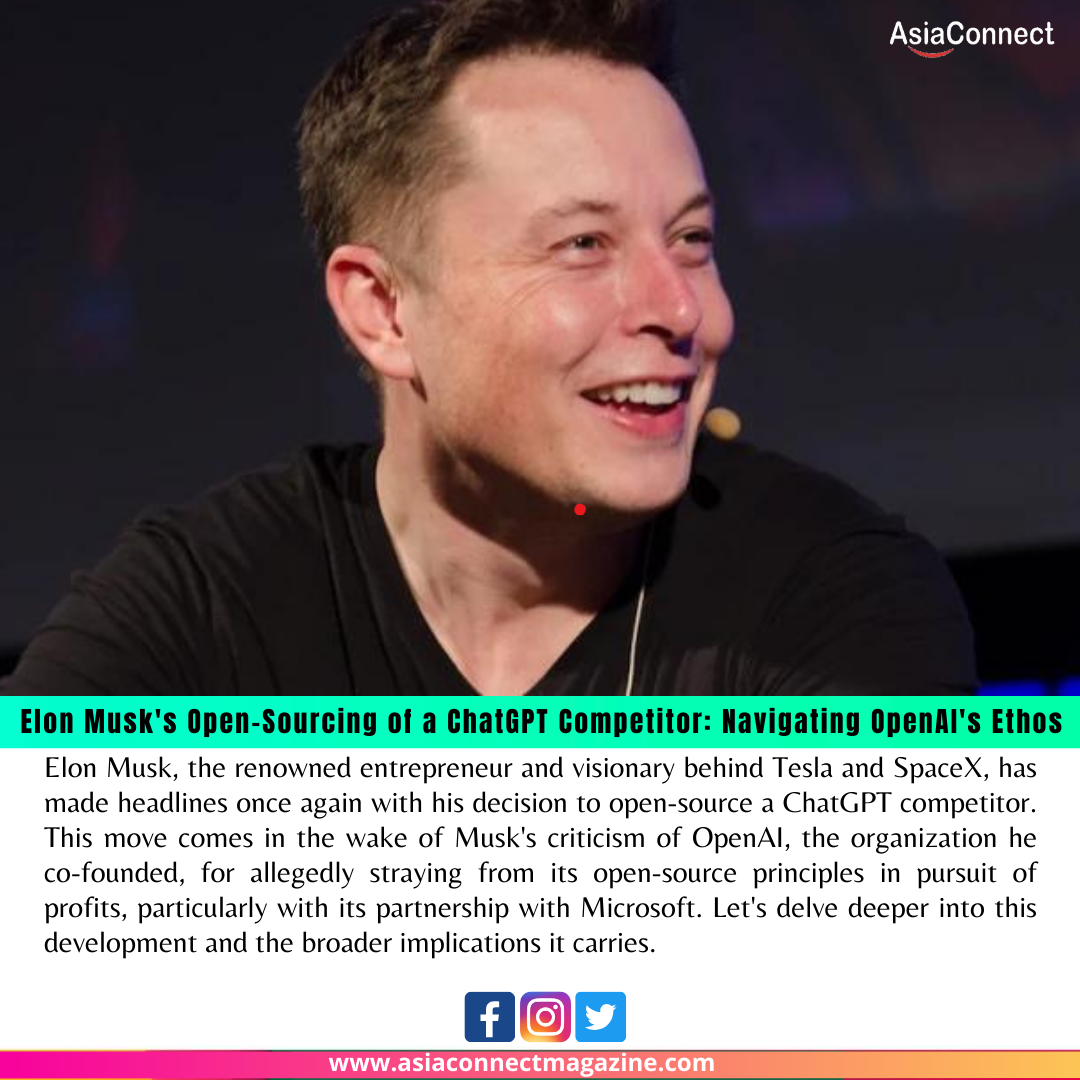Elon Musk, the renowned entrepreneur and visionary behind Tesla and SpaceX, has made headlines once again with his decision to open-source a ChatGPT competitor. This move comes in the wake of Musk’s criticism of OpenAI, the organization he co-founded, for allegedly straying from its open-source principles in pursuit of profits, particularly with its partnership with Microsoft. Let’s delve deeper into this development and the broader implications it carries.
The decision to open-source a ChatGPT competitor underscores Musk’s commitment to transparency, collaboration, and the democratization of artificial intelligence (AI) technologies. By making the code accessible to developers and researchers worldwide, Musk aims to foster innovation and empower individuals to contribute to the advancement of AI in a more inclusive and equitable manner.
Musk’s criticism of OpenAI’s alleged deviation from its open-source ethos reflects broader debates within the tech community about the balance between commercial interests and societal benefits. While commercial partnerships can provide resources and opportunities for growth, they also raise concerns about data privacy, ethical use of AI, and potential conflicts of interest.
The partnership between OpenAI and Microsoft, in particular, has drawn scrutiny due to Microsoft’s history of proprietary software and business practices. Musk’s critique resonates with those who prioritize open-source principles and believe in the importance of maintaining a collaborative and community-driven approach to AI development.
By introducing a ChatGPT competitor as open-source software, Musk not only offers an alternative to OpenAI’s offerings but also encourages competition and diversity in the AI landscape. This move can stimulate innovation, drive improvements in AI models, and ultimately benefit users by providing a range of options tailored to different needs and preferences.
Moreover, Musk’s decision aligns with broader trends towards open-source initiatives in the tech industry, where transparency, accessibility, and collaboration are increasingly valued. Open-source software has proven to be instrumental in accelerating technological progress, fostering creativity, and promoting knowledge sharing across borders and disciplines.
However, it’s essential to acknowledge the challenges and complexities associated with open-source AI initiatives. These include ensuring data privacy, mitigating biases in AI models, addressing cybersecurity concerns, and maintaining sustainable funding and support for ongoing development and maintenance.
Musk’s move also raises questions about the future direction of OpenAI and its relationship with commercial partners. Will OpenAI respond by reaffirming its commitment to open-source principles, or will it continue to prioritize profit-driven strategies? How will the competition between Musk’s open-source ChatGPT competitor and OpenAI’s offerings impact the AI market and innovation ecosystem?
In conclusion, Elon Musk’s decision to open-source a ChatGPT competitor reflects his vision for a more open, collaborative, and ethical AI landscape. It prompts important conversations about the intersection of technology, ethics, and business interests, highlighting the need for transparency, accountability, and responsible AI development practices. As AI continues to shape our world, navigating these complex dynamics will be crucial in harnessing its potential for the benefit of society as a whole.





